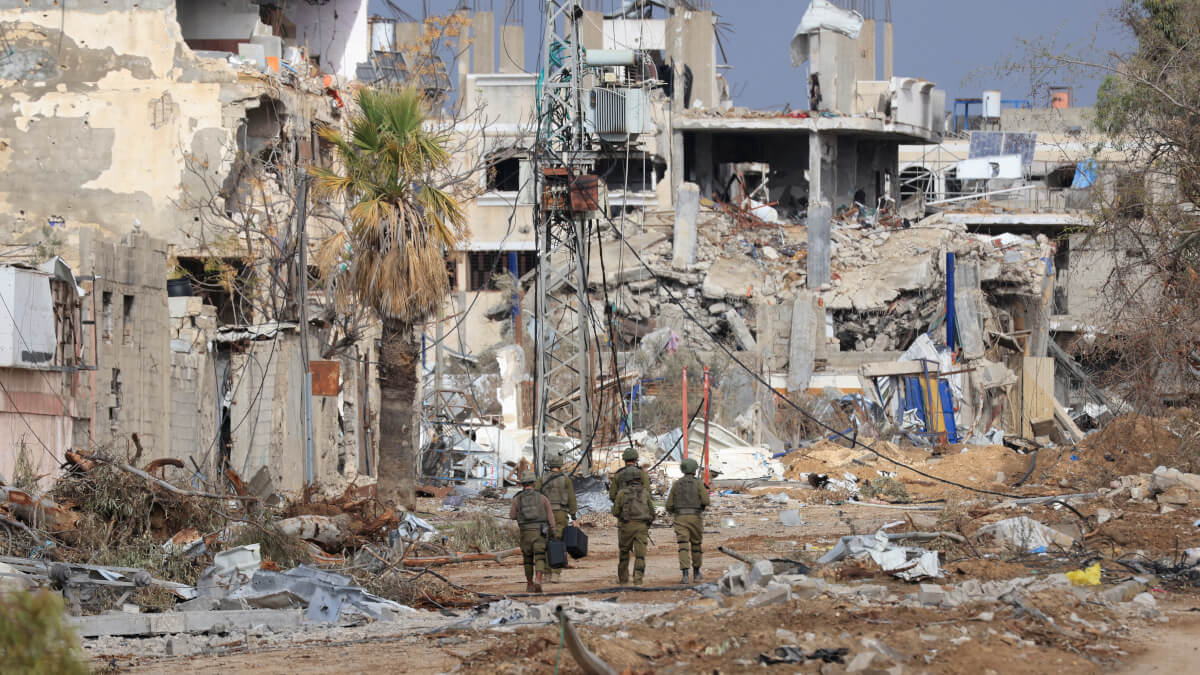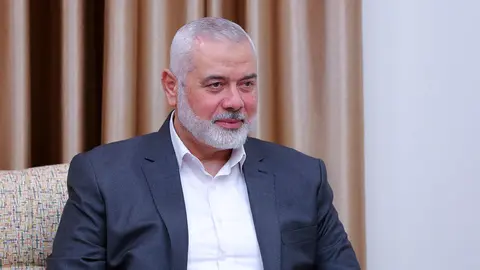Israeli army begins evacuation of Rafah area in southern Gaza

The Israeli army on Monday ordered the evacuation of eastern Rafah in the southern Gaza Strip after weeks of warnings that it would launch an invasion, while the Palestinian territory's civil defence announced the shelling of two neighbourhoods in the city.
The Israeli aerial and artillery bombardment "started last night and intensified this morning," said Ahmed Redwan, spokesman for the Palestinian civil defence, specifying that two of the targeted neighbourhoods, Al Shuka and Al Salam, are among those that the Israeli army asked civilians to evacuate a few hours earlier.
The announcement of the evacuation hinders mediation efforts by Qatar, Egypt and the United States to broker a ceasefire between Israel and the Palestinian Islamist movement Hamas that would allow the release of Israeli hostages held captive in Gaza after nearly seven months of war.
The Israeli army said this morning it began "a limited-scope operation to temporarily evacuate residents in the eastern part of Rafah," a spokesman said.
"The estimate is about 100,000 people," a military spokesman said when asked how many people are being evacuated from the Egyptian border town.
The World Health Organisation estimates that about 1.2 million people live in Rafah.

Israeli Prime Minister Benjamin Netanyahu vowed to invade Rafah, truce or no truce, despite concerns expressed by the US, his main ally, and the international community about the fate of civilian refugees there.
This evacuation order "portends the worst: more war and famine", EU diplomacy chief Josep Borrell said on Monday, urging Israel to refrain from launching a ground offensive.
A Rafah resident told AFP that some people received voicemails on their phones inviting them to leave and texts with a map showing where to go.
"The residents are evacuating in panic and terror," said Osama al-Kahlut, a representative of the Palestinian Red Crescent in eastern Rafah, who estimates that the area designated by the Israeli army affects some 250,000 people.
The army said it had extended "the humanitarian zone to Al Mawasi", a village on the coast about ten kilometres from Rafah.
Despite the announcement, a Hamas spokesman, Abdul Latif al-Qanou, said the movement is continuing "negotiations in a positive and open way to reach an agreement".
“No sabemos adónde ir”
The weekend round of talks in Cairo ended without concrete progress, with both sides accusing the other of intransigence. Hamas continues to insist that a ceasefire must be final and Israel maintains its pledge to annihilate the Palestinian movement, which on 7 October launched an unprecedented attack on its soil that triggered the war.
On that day, Islamist commandos launched an assault in southern Israel that killed 1,170 people, mostly civilians, and kidnapped some 250, according to an Israeli-based assessment.
The Israeli authorities estimate that, following a hostage swap for Palestinian prisoners in November, 128 people remain captive in Gaza and that 35 have been killed so far.
The retaliatory offensive launched by Israel in response to the attack has already left 34,735 people dead in Gaza, also mostly civilians, according to the health ministry of the Hamas-ruled Palestinian territory.
Overnight shelling of Rafah continued, leaving 16 dead, and shortly after the announcement the Palestinian civil defence reported that the Israeli army "intensified" its attacks.
A couple living in Rafah said they found out about the evacuation when they woke up after a night of anguish under shelling.
"My family and I, 13 people, don't know where to go," Abdul Rahman Abu Jazar, 36, told AFP, noting that the "humanitarian" zones designated by the Israeli army are already "overcrowded".
"Negotiations at a standstill"
The Israeli prime minister said on Sunday that accepting Hamas's "demands" to end the war in Gaza would be tantamount to "surrender".
Hamas chief Ismail Haniyeh accused Netanyahu of "sabotaging the efforts of the mediators".
The Israeli army on Sunday announced the closure of the Kerem Shalom crossing into the Gaza Strip - through which some humanitarian aid enters - following a Hamas rocket attack that left four soldiers dead.
The bombing caused a "stalemate in the negotiations" for a truce, according to the Egyptian media Al Qahera News, which is close to the intelligence services.
On Monday, US intelligence chief William Burns will hold an emergency meeting in Doha with Qatari Prime Minister Mohamed bin Abdulrahman al-Thani "in the absence of progress", a source close to the negotiations said on Sunday.










